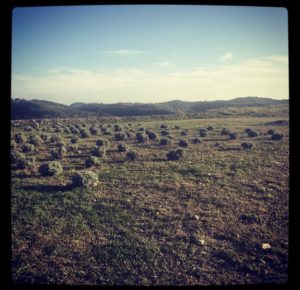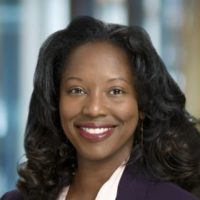
I’ve been an environmental advocate for most of my life. In fact, my fight for clean air and water started in my garage in elementary school. My first science fair project was an experiment to determine the impact of diesel car emissions on various green plants in our front yard. And later that year, I would test the quality of drinking water in 5 different locations around the Detroit Metropolitan area – using a $5-dollar water testing kit my Dad and I bought from the local hardware store. My parents had no clue that these little experiments would ignite a fire and passion for protecting our environment and people from environmental harms that still burns today.
Environmental advocacy has been a constant thread through my professional and volunteer work, teaching and parenting, that afforded me a range of opportunities, from speaking at The White House to marching in solidarity with thousands of environmental advocates to demand that all Peoples – particularly the poor, and/or people of color – have the right to clean air, clean water and a healthy environment. These basic human rights are not guaranteed, even at a time where the science clearly shows us a dirty environment has harmful impacts on personal health.
But if I had been born and raised in West Virginia (and not my hometown of Detroit, Michigan), might my story or what I chose to advocate for, have been different? Over the past 6 years, our federal government got serious and put forward a series of strong, environmental regulations to improve human health by reducing pollution, cleaning our air, fighting against climate change and incentivizing a shift to move away from energy generated by coal-fired power plants to cleaner forms of energy like solar and wind power. The impact of these regulations and other economic factors resulted in many coal-fired power plants closing their doors across the country, hitting hard the areas like West Virginia that have built their wealth on extractive economies (both past and present) that started with slavery, salt mining, coal mining and mountain top removal that continues to this day. But it’s not just the plants, but the people that have been hit hard: former coal miners with no health insurance to manage their health and other physical disabilities caused by working in the coal mines; most children and families living below the poverty line; the steady incarceration of youth due to an increase in non-violent crimes; and, the opioid epidemic that continues to touch people of all ages, races, and generations. The cumulative impacts of losing coal have deeply changed the communities across West Virginia, particularly in Raleigh and McDowell Counties. And while the news media might focus on the financial loss, the loss of hope that has been experienced in these communities – in some cases – is just as dire.
Nestled among the winding roads, dressed in beautiful trees and modest homes, sits The Beckley Dream Center, in Beckley, West Virginia. This Dream Center, a faith-based, non-profit organization, provides a range of support services for the underserved of West Virginia that includes former coal miners, those suffering through various forms of addictions, to providing services to children living in severe poverty. While the challenges in West Virginia are extreme, I found hope in the stories and work of these wonderful advocates on the ground. The staff of the Dream Center, organizations like the United Way of Southern West Virginia and Recovery Point (another non-profit working with people struggling with substance abuse) convinced me that they are passionate dealers of HOPE (not dope!). And this is the hope that – I believe – will allow the underserved in West Virginia to dream beyond their reality, transcend the current environmental, mental and physical conditions of their community, and break the generational cycles of poverty and addiction.
But like many places in our country, the challenges are complicated and multi-faceted, even within the same state. About an hour away in Charleston, West Virginia, many of the challenges faced by this community, were like the challenges I faced growing up in Detroit: neighborhood safety, high incarceration rates for youth of color, workforce development (particularly for those that are aged or transitioning to another career), and the need for economic development in a place that was really, heavily dependent on one industry (in Detroit’s case, making cars!). Local philanthropic partners vocalized the desire to practice responsive grantmaking that would seek to address the more visible/obvious challenges (mentioned above) that certain communities in Charleston are facing. But there was less of a discussion as to how Charleston would effectively tackle the invisible challenges to achieve racial equity, which not only requires authentic partnerships, but also acknowledging and understanding how the history of the place must shape the solution.
The history and wealth of West Virginia – according to historian Dr. Billy Joe Payton from West Virginia State University – was built on the extraction of natural resources (an abundance of salt springs and coal), stolen land (from the Native American inhabitants) and slavery. My stepfather – who was born and raised in Charleston – shared many stories of his enslaved ancestors, how his great-grandparents working in the coal mines (and later farming) to forge the path for future generations. More importantly and with great pride, my stepfather always spoke about how in the early 1930s and 40s, that in East Charleston, there was an African-American economic empowerment zone in East Charleston that showcased a set of self-sustaining black-owned businesses, but also contributed to a large wave of some of the first Black doctors, educators, and lawyers that would matriculate across the United States – further proof that what might begin as a painful start, can birth something beautiful.
I am very thankful for the experience of West Virginia, specifically the community leaders and advocates that sacrificed their time to share their stories and passion with a group of strangers from across the country. As funders, we can practice our grantmaking in a way that will allow us to be ‘dealers of HOPE’. And, I plan to put that into practice by remembering three things:
- The contradictions are real. Acknowledge them and do “good with what you got”.
As one person shared in Beckley, West Virginia, “the checks from his grandfather’s black lung disease from working in the coal mines provided a way for his grandchildren to go to college”. This contradiction of the source of wealth from coal, now being a contributor to some of the challenges faced by the community is real, much like the world of philanthropy. As grantmakers, we have the privilege of making grants to deserving organizations that are doing the hard work on the ground. However, the source of wealth that started many of our large philanthropies came from an extractive economy, slavery and other products of a capitalistic society that have resulted in many negative, disproportional outcomes in certain communities. Acknowledging this truth is the first step. But knowing this history can also serve as a driver for us to make bold investments in people and places so new stories of hope become the dominant narrative.
- Some of our philanthropic addictions need to be treated.
The ways in which we practice grantmaking need to be disrupted. We are addicted – in some cases – to sticking with systems, practices and supporting institutions and organizations that perpetuate racism and injustice in ways we might not be aware of (e.g. funding the same groups we’ve funded in the past, not holding ourselves or our institutions accountable to our mission, not taking the time to build trust and engage a variety of community experts, not taking the time to find, build relationships and resource grassroots organizations that are led by people of color, low income people, and other ‘othered groups’ that are constantly under-resourced). What I plan to do, in every grant cycle, is consider the following questions:
Am connected to the RIGHT people in this PLACE where I want to fund?
Do I understand the full story – both the visible and invisible challenges – of this PLACE?
Am I supporting programming, activities or groups that might be unintentionally contributing to racial inequity in this PLACE?
As funders, we can break the cycle of addiction. Just as the advocates of West Virginia are working to end the generational challenges of addiction and poverty, as funders, we can break the cycle of addiction to funding practices that allow institutional and structural racism to persist. As one of our speakers said, “the opposite of addiction is connection”. So, let’s make sure we connect our grantmaking to the roots and not just the symptoms of any issue, so we can really get the impact we deeply desire.
- Where it is most uncomfortable is EXACTLY where the work needs to be done.
In the words of one of our fearless PLACES leaders, our protest is our labor. And there is nothing comfortable about a protest – if you are doing it right! Whether it’s the board rooms we report to, our staff gatherings, our affinity group annual meetings, our homes, personal lives, or our interactions with our grantee partners across the country, to disrupt the norms, we must be bold, intersectional in our thinking, and practice grantmaking with a sense of humility but also a sense of urgency. I encourage us all to begin to raise issues of racial equity and have the uncomfortable conversations with colleagues, grantee and other leaders among the many professional and social circles we inhabit in life. 20 months into philanthropy, I am learning slowly that if the situation, the grantmaking, and or the conversations I have become uncomfortable – then most likely, I am right where I need to be. And that is my protest.
Catch up on our last Going PLACES blog here.
About the Author:
Dr. Jalonne L. White-Newsome, Senior Program Officer, Environment, The Kresge Foundation

Jalonne L. White-Newsome is senior program officer at The Kresge Foundation, responsible for the Environment Program’s grant portfolio on Climate Resilient & Equitable Water Systems (CREWS). Jalonne also leads the foundation’s work addressing the intersection of climate change and public health.
Before joining Kresge in early 2016, Jalonne served as director of federal policy at West Harlem Environmental Action Inc. (WE ACT), where she was involved with leading national campaigns and a 42-member national coalition of environmental justice organizations. Her work helped ensure that the concerns of low-income communities of color were integrated into federal policy, particularly on clean air, climate change and health issues. She is an adjunct professor at The George Washington University in Washington, D.C., and continues to engage in research on climate, health and equity. She was recently appointed to be a member of the National Academy of Sciences Board on Environmental Change and Society, and is serving as a lead author for the human health chapter for the 4th National Climate Assessment.
A native of Detroit, Jalonne earned a Ph.D. in environmental health sciences from the University of Michigan School of Public Health; a master’s degree in environmental engineering from Southern Methodist University; and a bachelor’s degree in chemical engineering from Northwestern University. She serves on the board of US Climate Action Network, and is a steering committee member of the Health Environmental Funder’s Network. Jalonne is a 2017 PLACES Fellow with The Funders Network.
